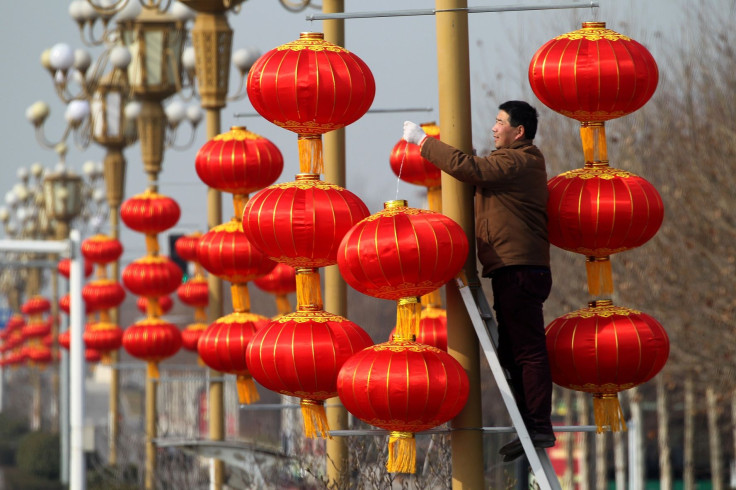Chinese New Year 2017: List of forgotten traditions

Chinese New Year 2017 will start on Jan.28 this year, which is the Year of the Rooster. The celebrations of what is also a spring festival originally involved a lot traditions. However, gradually the celebrations have turned into a mere seven-day holiday and there’s little excitement about the rituals, which were earlier followed enthusiastically. Here is a list of the traditions that are gradually dying.
Not going out on the third day
The third day of the spring festival is considered to be the day of the god of anger. It is believed that if people would step out of their home, they would meet the god of anger and that would bring them bad luck. Hence, on this day people generally do not go out nor do they welcome guests. However, with time people, have forgotten this tradition.
Honouring the kitchen gods
According to Chinese superstition, it is believed that on the 23rd day of the 12th month of the lunar calendar, the kitchen gods prepare a list of deeds (good and evil both) and they present it to the Jade Emperor of heaven. It is believed that if the kitchen gods are honoured with good food such as cakes, bean-curd soups, nuts and dried foods, they only speak of the good deeds in heaven. However, this ritual is rarely observed these days.
Thereafter, the kitchen gods come back on the fourth day of the New Year. To welcome them, incense and paper, which represented money, was burned along with offering food items.
Setting off firecrackers
According to the tradition, a string of firecrackers were burnt at 12AM, making the beginning of the spring festival at the opening doors of homes. This was followed by three big firecrackers. The louder the sound of the firecracker, the luckier the coming year was believed to be. However, due to increasing pollution, this tradition is now avoided by many people.
Fermentation of flour
Earlier, families used to ferment the flour for food including steam buns two days prior, which is on 28th day of the 12th month of the lunar calendar. This is because after that, the preparations for the spring festival kept people busy. Moreover, fermenting it earlier than this could lead to dough (with yeast) turning bad. However, now baking powder is more easily available and efficient, hence, fermentation of flour is rarely observed these days.
Steaming buns
Earlier, people used to steam buns on the 29th day of the 12th month of the lunar calendar as it was believed that steaming of buns during the first five days of the Chinese New Year was unlucky. Hence, people would cook dishes and steam buns prior to the day, generally on the 29th day. However, now that buns are easily available in the markets, this custom is rarely seen in homes.
Sweeping the floor on the first day
Sweeping the floor on the first day of the Chinese New Year is considered unlucky as that implies sweeping the good luck away. Exchange of gifts is highly observed on this day. Hence, people shall not use a broom to clean floors as this would mean sweeping away the good luck along with it.
Honouring the god of fortune
The fifth day of the Chinese New Year is marked as the birthday of the god of fortune and wealth, Caishen. On this day, people used to sacrifice whole pig, chicken, goat, duck, or live carp to pray for luck in the New Year. Now, people often do not do that. Instead, they burn incense praying to the god or offer dry fruits.





















